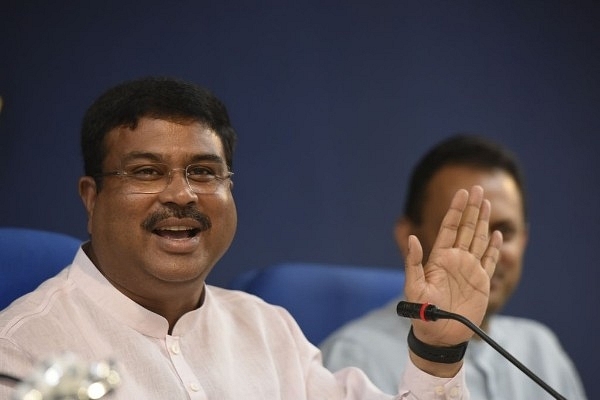
Petroleum Minister Dharmendra Pradhan Assures Of Relief In Oil Prices If Global Tensions Do Not Escalate
Petroleum Minister Dharmendra Pradhan on Monday said on Monday (23 September) that oil prices would ease if the ongoing global tensions do not increase.
He also said that crude oil prices have already eased by a few dollars per barrel in the past few days.
Crude oil prices surged as high as 20 per cent on 16 September after the drone attacks on Saudi oil major Aramco's key facilities on 14 September. On 16 September, the first working day post the attacks, prices of the benchmark Brent crude surged to $72 per barrel.
Eventually, however, prices have eased, following assurances improvement in supplies by Aramco. The demand scenario also has remained stagnant which has helped prices come down from the recent highs.
On Monday, Brent crude was trading around $63.94 per barrel.
The ongoing tension in the Middle East and the persistent US-China trade war has also helped the spike in oil prices.
Crude oil prices impact India severely as the country imports over 80 per cent of its oil consumption needs.
Since the attacks, petrol prices across the country have increased by nearly Rs 2 per litre. On Monday, petrol was priced at Rs 73.91 per litre in the national capital.
Following the largest ever-disruption of crude production in Saudi Arabia, experts have suggested that prices of petrol and diesel in India may shoot up by Rs 5 to 6 a litre.
A recent report by Kotak said that in light of the sharp rise in international crude oil prices, Indian oil marketing companies may increase the retail price of diesel and gasoline by Rs 5 to 6 per litre in the following fortnight.
However, government sources have indicated that, even if the surge in crude prices holds on for a longer period, consumers would not be burdened with high auto fuel prices as oil companies and the government may absorb a portion of the price hike.
(This story has been published from a wire agency feed without modifications to the text. Only the headline has been changed.)